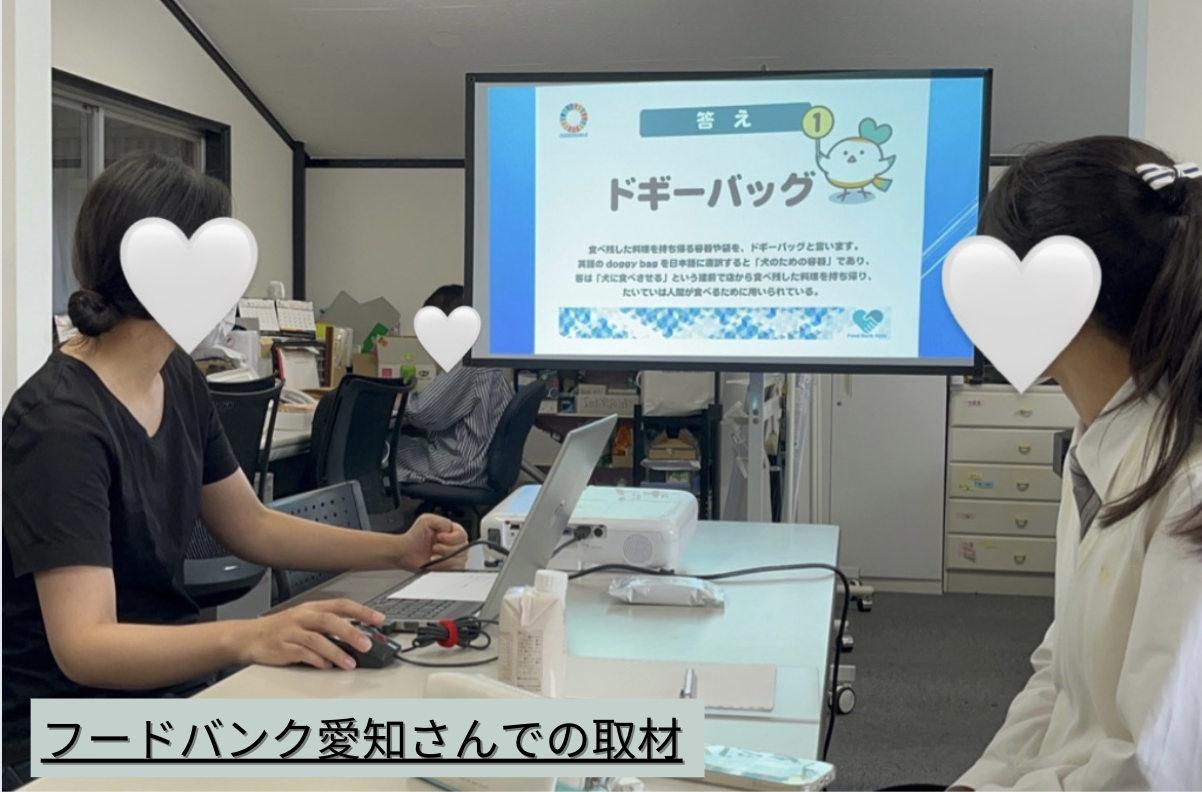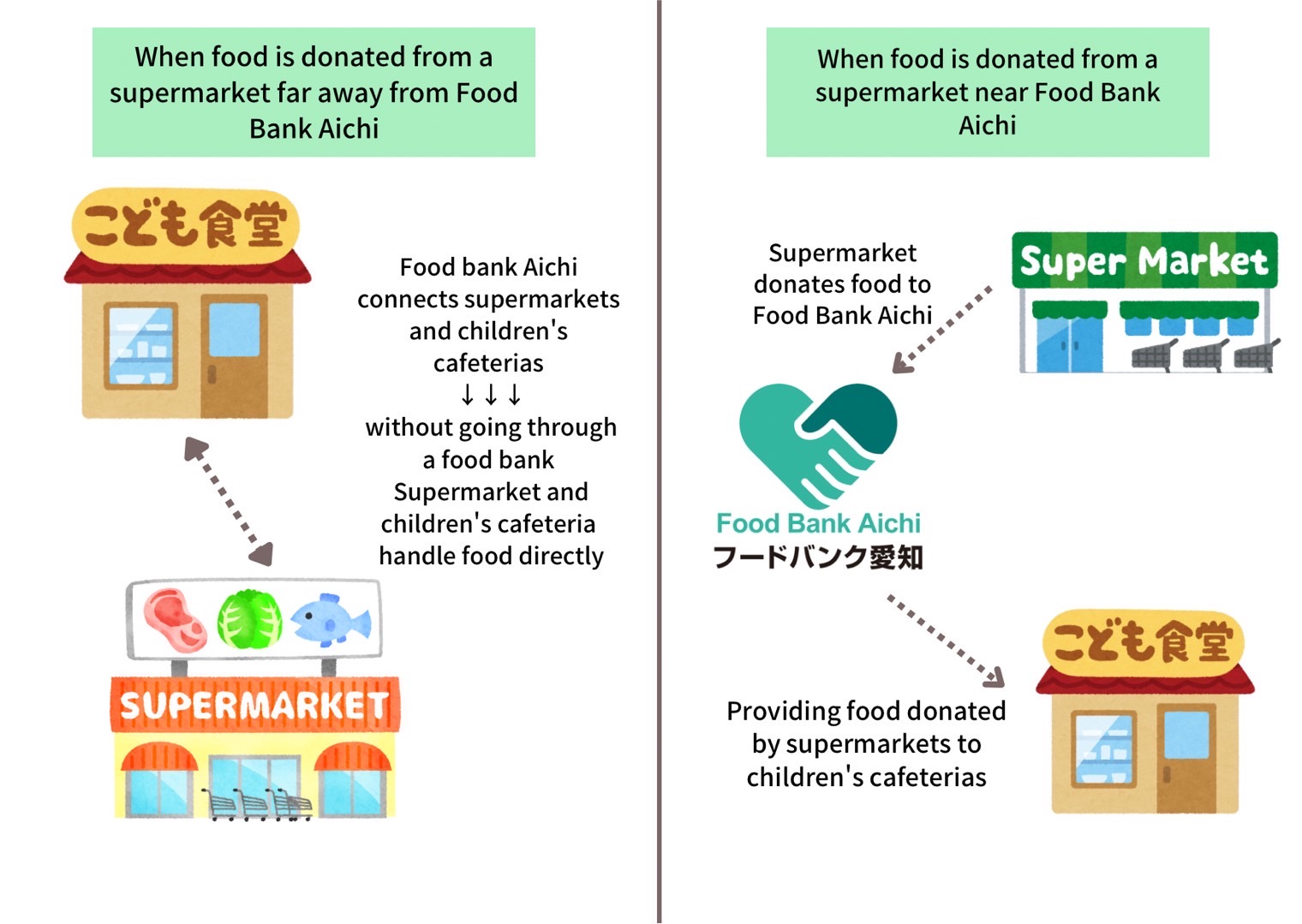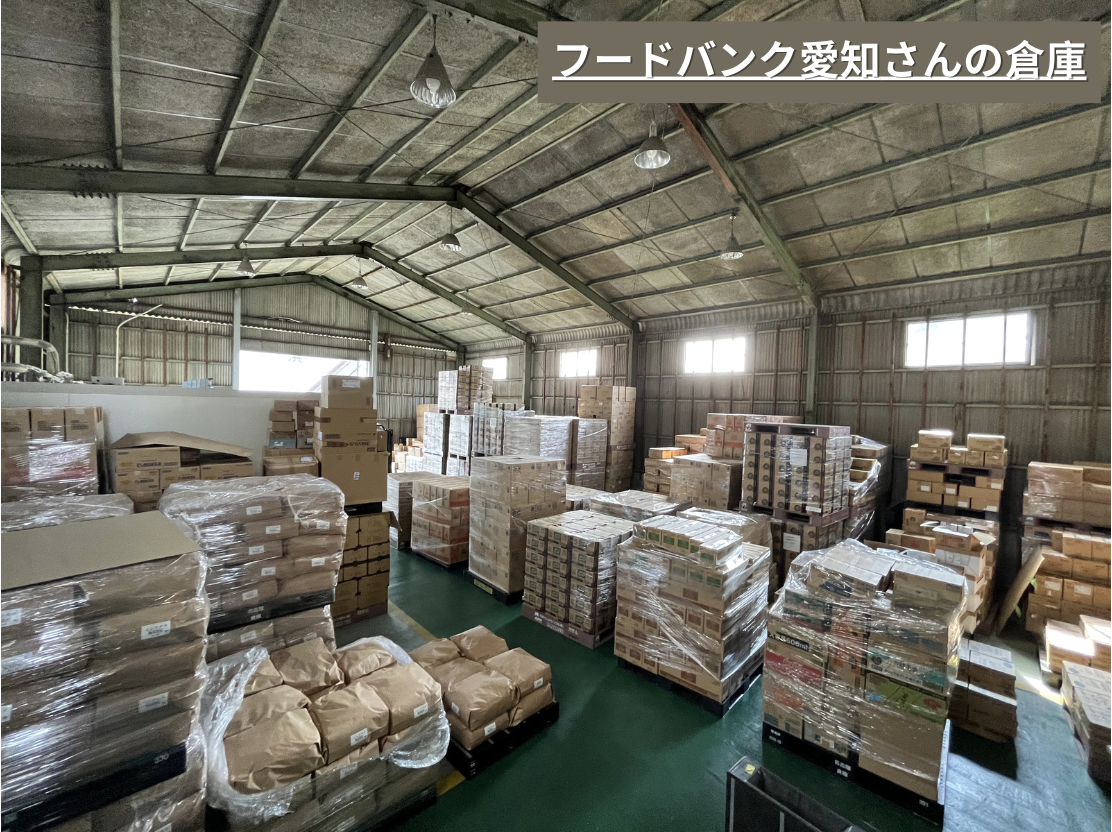


On August 29th, three members visited Food Bank Aichi for an interview!

We interviewed the staff of Food Bank Aichi.

We studuied the basic knowledge about food waste.
We learned things such as
・Vegetables grown by farmers are sometimes thrown away
because it is cheaper to throw them away because transportation costs are high.
・Retailers buy more products than they need
because they want to give the impression that they always have a wide variety of products,
because if old products are lined up on the shelves, the impression of the store will be bad.
・In Japan, the delivery period is shorter than in other countries, and retailers are constantly purchasing new foods.

We took a quiz and confirmed our knowledge about food loss!

We asked about the activities of Food Bank Aichi.
Food Bank Aichi started in March 2020 on a scale of providing food to about 1,000 people, and in August 2022,
they are involved in providing food to about 120,000 people.
Food Bank Aichi has partnered with approximately 200 large supermarkets in the vicinity to
donate products that have become dented during transportation or food that they have purchased in excess.
However, Food Bank Aichi receives food from supermarkets far away.
As a result of thinking about how to reduce the transportation costs
and energy required to deliver food from distant places,
they came up with the idea of collaborating with more than 100 children's cafeterias in Aichi Prefecture to efficiently deliver food.
Food Bank Aichi connects the children's cafeteria with supermarkets near the children's cafeteria,
and plays the role of a network in the area.

In addition, this has made it possible to consume locally generated food loss locally.
By the way, there are currently some rare foods delivered that
were prepared for foreign tourists but were scheduled to be discarded due to covid-19.
In addition to the food that would otherwise be thrown away,
food bank sometimes receives food from the supermarket because they want the children in the children's cafeteria to eat it.

We interviewed people from the food bank Aichi about the issues they are currently facing.
Food Bank Aichi is an NPO, so the volunteers are doing their work free of charge.
It is sometimes difficult for them to do jobs both for their work and the food bank.
Also, while there is no financial profit from the activities,
various operating costs such as land and electricity are required to carry out the activities.
We are applying for government subsidies to solve these problems, but the procedures are complicated.
In addition, the needy people are in need all year round,
but the food and beverages that reach the food bank differ depending on the season,
and it it is difficult to provide food constantly, so various measures are being taken.
For example, the amount and type of food delivered to each food bank varies
depending on the number of products and companies produced by food manufacturers near the food bank,
so food banks often distribute surplus food to the needy.
They are devising ways to ensure that there are no needy people throughout the year, such as by sharing food.

We looked around the warehouse of Food Bank Aichi.
It was divided into items stored at room temperature, refrigerated, and frozen,
and was stored in separate warehouses.




We were very surprised that more food was donated than we had imagined.

A forklift is used when transporting food.

Using such a weight scale,
the weight of food is measured.

We were able to learn about the thoughts of those who are actually involved in activities to reduce food loss and what they think about food bank activities.
We were very impressed by the story that the staffs started the activities of the food bank from reasons such as ""Delivering food to the needy doesn't mean I can make a profit, but I somehow want to help those in need."
“I want to give back to the community where I have lived.”
We were also touched by the desire to help those in need who have continued their activities and helped many people, even though it was not easy to raise the necessary funds and continue their activities. .
Through the interviews, we not only gained knowledge about food loss and food banks,
but also strengthened our desire to help others and to take action even as students.
